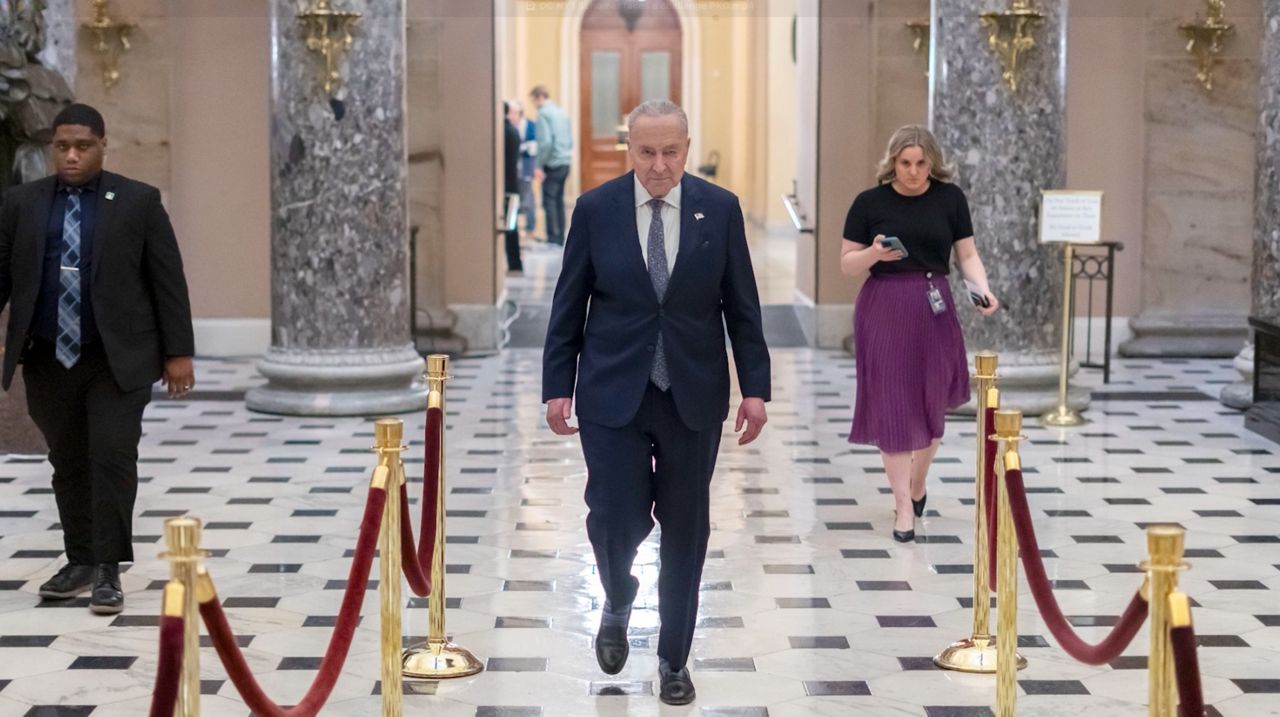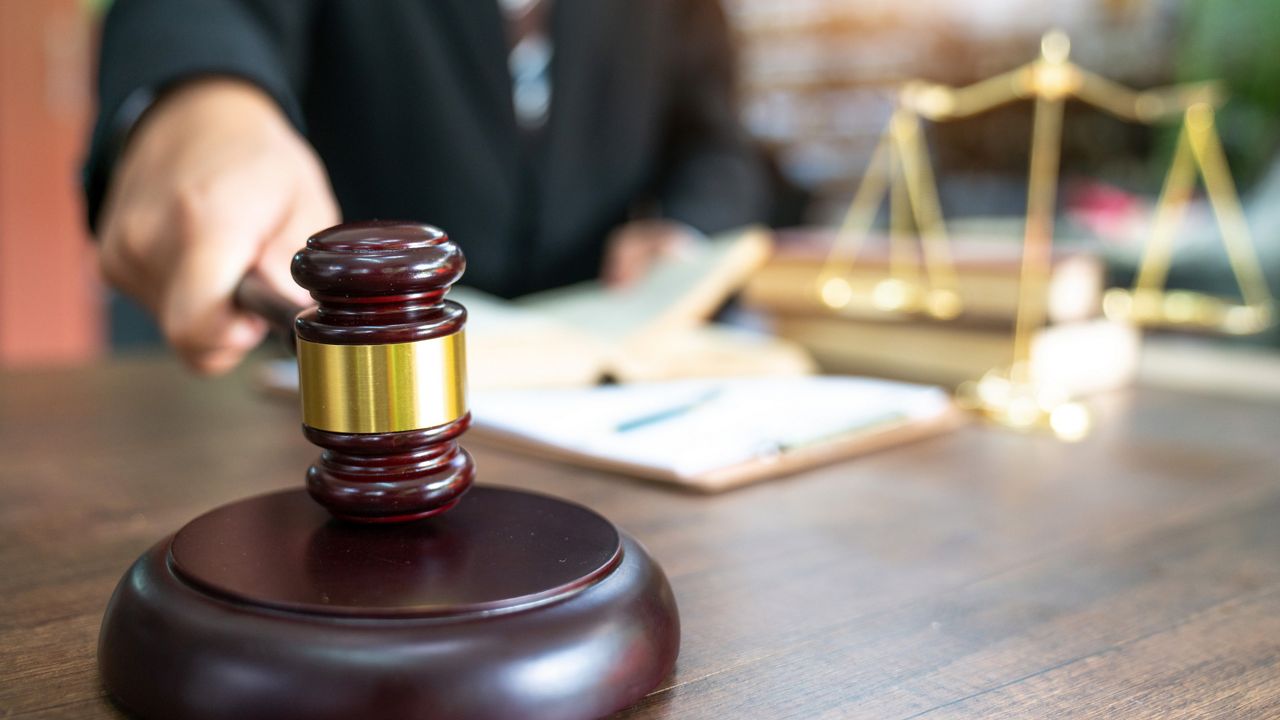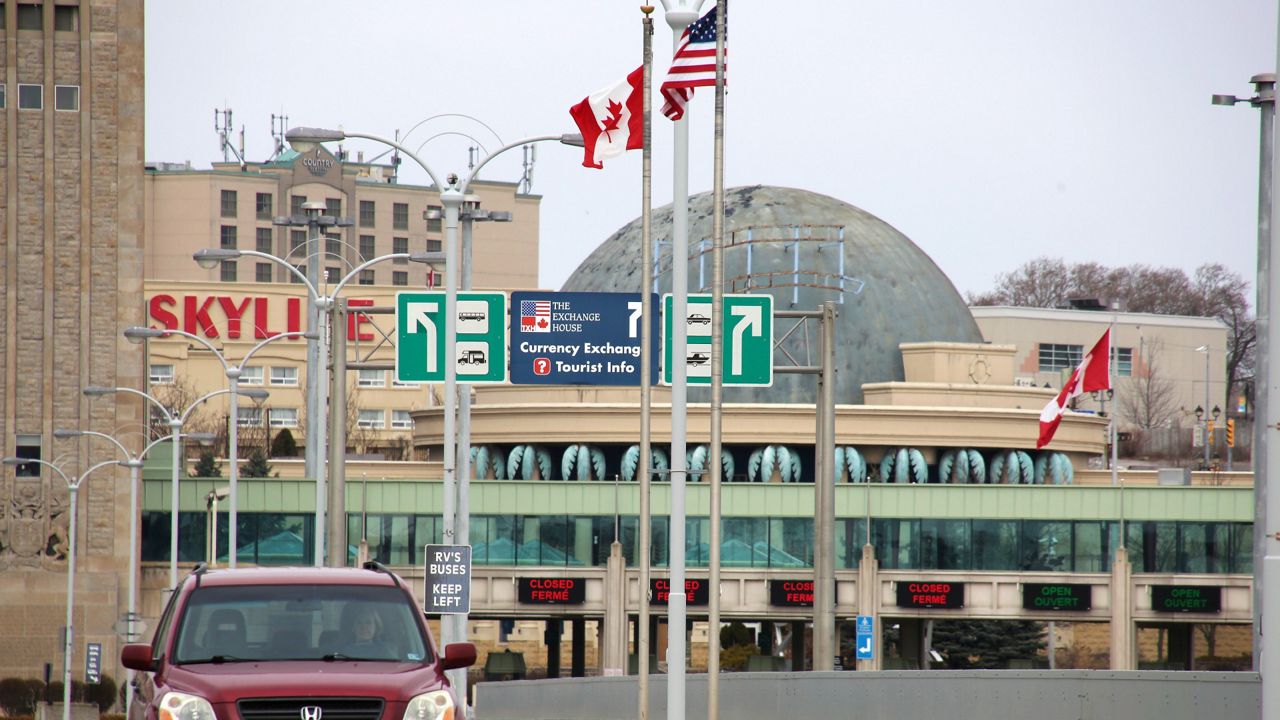Officials with the state's ethics watchdog are doubling down on efforts to enforce New York's ethics and lobbying policies and investigate complaints while a lawsuit threatening to dismantle its authority works through the courts.
Members of the Commission on Ethics and Lobbying in Government held a special meeting Wednesday afternoon, meeting publicly for fewer than five minutes before heading into an executive session. It marked the commission's first meeting since a state Supreme Court judge ruled Monday that the entity is unconstitutional.
The commission immediately entered executive session for more than two hours to discuss the ruling behind closed doors as permitted under state law. They briefly reconvened to adjourn.
"In executive session, the commission addressed matters concerning pending litigiation," commission Executive Director Sanford Berland said before calling the meeting to a close.
Representatives with the state Commission on Ethics & Lobbying in Government declined to be interviewed Wednesday, citing the pending litigation. They would not answer questions about impacts on the agency's work or future meetings.
Officials referred to Sanford and COELIG chair Frederick Davie's statement Monday, saying they will review all legal options and that the state ethics and lobbying laws remain intact.
"The commission intends to move forward, deliberately and with zeal, to fulfill its mission to restore New Yorkers’ faith in government, even as it pursues relief from today’s ruling through the appellate and legislative processes," Sanford and Davie said Monday. "...While this matter works its way through the courts, the commission will continue to promote compliance with the state’s ethics and lobbying laws."
Former Gov. Andrew Cuomo engaged the ethics enforcement entity in a legal battle in an effort to thwart a probe that could result in him losing $5.1 million profit to write his pandemic memoir "American Crisis: Leadership Lessons from the COVID-19 Pandemic."
The state Supreme Court ruling alleges the group's process to appoint its 11 members lacks executive oversight, which the Legislature voted to create with the new agency last year. The judge also argued lawmakers needed to create the enforcement agency through a constitutional amendment.
The injunction will be invalidated once the state attorney general's office appeals the decision, which is expected to be filed in the coming days.
Advocates argue the ruling should not prevent the ethics commission from proceeding with normal business.
But Rachael Fauss, senior policy advisor with Reinvent Albany, said it could disrupt pending ethics cases involving public officials.
"Their lawyers are going to try to make an argument that this commission is illegitimate, so it really will stall the work of the commission," she said Wednesday.
Lawmakers established a new ethics watchdog to replace the former Joint Commission on Public Ethics created under Cuomo after questions about its independence from the executive.
Advocates have increasingly called out the decision and say they're confident it will be struck down by a higher court.
"They're just making it up," Common Cause NY Executive Director Susan Lerner said. "Frankly, it's a very radical extremist theory. It's authoritarian in its impulses. It's anti-democratic, and I expect it will be rejected by New York's courts.
"Two hundred and fifty years of constitutional interpretation, then all of a sudden, we get this unitary executive idea that nobody's ever heard of before?" she added Wednesday.
Some organizations are pushing the Legislature to hold a hearing to evaluate the efficacy of the new commission, Fauss said.
"The Legislature and the governor should not do this without public input," she added. "Should the constitutional issue be discussed and the courts find that this commission is unconstitutional ... it should be a public process for determining what should replace this ethics commission if it comes to that."
Good-government groups were split on the structure of the Commission on Ethics & Lobbying in Government, with Reinvent Albany and New York's Public Interest Research Group against the legislation Gov. Kathy Hochul ultimately signed into law.
"I think it's telling that we are now defending its constitutionality," Fauss said. "We want as many steps removed from the governor as possible, especially when you're talking about ethics oversight."
Lerner supported the new agency designed by the Legislature.
"I think it was done the proper way," Lerner said. "You know, none of my colleagues were able to come up with any better suggestions for how you ensure independent oversight."
Many good-government advocates are open to a constitutional amendment, which they say could lead to the most meaningful ethics reform to work in additional layers of independence.
"New Yorkers don't want the foxes guarding the henhouse," Lerner said. "It's been an embarrassment not to have effective ethics oversight in the Empire State."
Lawmakers and state officials will likely wait for higher court decisions before taking additional action.
The Commission on Ethics & Lobbying in Government's next regular meeting is scheduled for Sept. 27.










